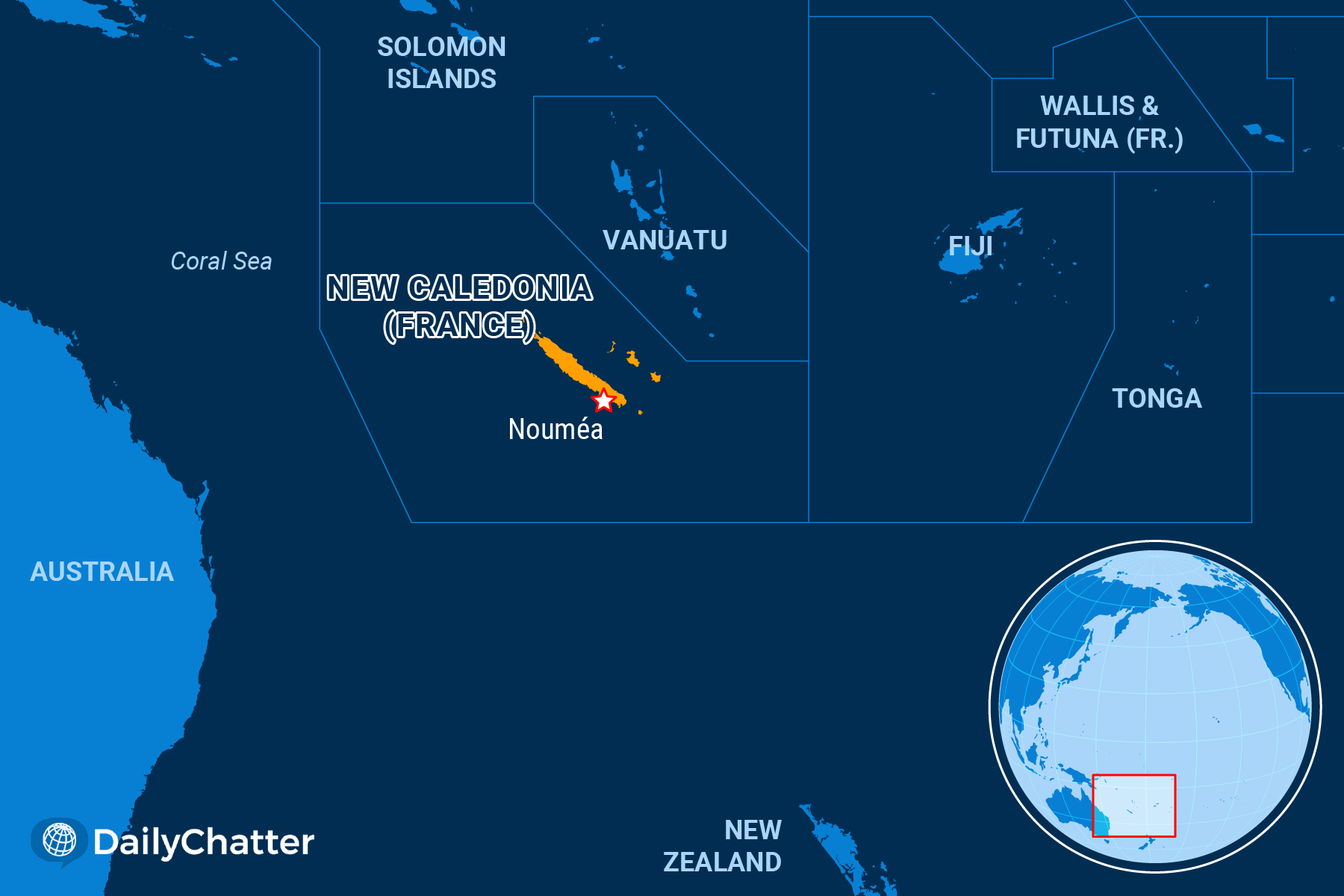A Problem of Geography

Authorities in the French South Pacific territory of New Caledonia imposed a curfew on Tuesday after a series of protests wreaked havoc in the archipelago over a bill to change election rules, an initiative from President Emmanuel Macron’s government that opponents say is intended to weaken the territory’s independence movement, the New York Times reported.
Unrest broke out on Monday, as pro-independence activists demonstrated against the bill that would allow more French citizens living in New Caledonia to vote for the territory’s federal parliament. The draft law, which the French lower chamber in Paris was set to discuss on Tuesday, would minimize pro-independence claims, activists said.
Violent clashes between protesters and law enforcement continued into Tuesday before New Caledonia’s High Commissioner Louis Le Franc imposed a 12-hour nightly curfew in the capital, Noumea. He also announced bans on public gatherings, the sale of alcohol, and the carrying of weapons.
On Tuesday, peaceful marches protesting the controversial bill were held across the territory, local public broadcaster Nouvelle-Calédonie la 1re reported.
Voter rolls in New Caledonia were frozen in 2007. This means that only people registered before 1998 and their descendants can vote in local elections today.
The new legislation aims at “unfreezing” the rolls, which may increase them by up to 25,000, in a territory with a population of about 270,000.
On Tuesday, New Caledonia’s parliament passed a motion demanding that Paris scrap the bill in a symbolic, non-binding vote.
In Paris, the proposed law enjoys a consensus, France’s L’Express wrote. However, left-wing politicians accused Macron’s administration of dropping a “bomb on civil peace.”
Following riots in the 1980s, the two sides came to an agreement with France granting New Caledonia significant autonomy compared with other overseas territories, a relic of France’s colonial empire.
Under the agreement, three referenda on independence were held from 2018 to 2021. All failed, as some Indigenous Kanaks – 40 percent of the population – boycotted the last vote over coronavirus concerns.
Now, the pro-independence movement says France is becoming increasingly aggressive at retaining control over the territory.
That’s because the French government sees New Caledonia and France’s other Pacific territories as a bulwark against China, which has been aggressively expanding its presence in the Pacific, analysts said. New Caledonia also has some of the world’s largest nickel reserves, which has been another point of friction between local populations, corporations and the French government, the New York Times wrote.

Subscribe today and GlobalPost will be in your inbox the next weekday morning
Join us today and pay only $32.95 for an annual subscription, or less than $3 a month for our unique insights into crucial developments on the world stage. It’s by far the best investment you can make to expand your knowledge of the world.
And you get a free two-week trial with no obligation to continue.
